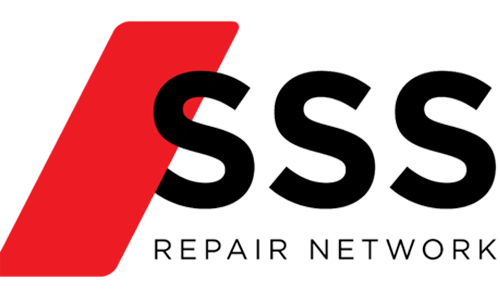Accidents can have far-reaching impacts on your physical health, emotional well-being, and financial stability. Understanding the types of compensation you may be entitled to can help you recover from these losses and secure the support you need to move forward. Whether it’s a car accident, a workplace injury, or a slip and fall, knowing the different categories of compensation can make all the difference in ensuring a fair settlement. Here’s a closer look at the types of compensation you can claim after an accident.
Medical Expenses
Medical costs are often the most immediate and significant concern following an accident. You can seek compensation for:
- Emergency Care: Ambulance fees, emergency room visits, and immediate medical treatment.
- Hospitalization and Surgery: Costs associated with hospital stays, surgical procedures, and any specialist care required.
- Ongoing Treatment: Follow-up doctor visits, specialist consultations, and rehabilitation therapies.
- Medications and Medical Devices: Costs for prescription medications, medical supplies, and assistive devices such as crutches or wheelchairs.
Why It Matters:
Accurate documentation of your medical expenses, including receipts and detailed medical records, is crucial for proving your claim and ensuring you are reimbursed for all accident-related healthcare costs.
Lost Wages and Loss of Earning Capacity
If your injuries prevent you from working, either temporarily or permanently, you may be entitled to compensation for:
- Lost Wages: Reimbursement for income you would have earned had you not been injured, covering the period of your recovery.
- Loss of Earning Capacity: Compensation for any long-term or permanent reduction in your ability to earn an income due to your injuries.
- Missed Opportunities: Compensation for lost bonuses, promotions, or career advancements that were affected by your inability to work.
Why It Matters:
To claim lost wages or loss of earning capacity, you will need to provide documentation from your employer detailing your regular income and the time missed due to your injuries, along with medical records showing your inability to work.
Pain and Suffering
Pain and suffering compensation addresses the non-economic impact of an accident, which can be just as significant as physical damages. This includes:
- Physical Pain: Compensation for ongoing pain, discomfort, or physical limitations resulting from your injuries.
- Emotional Distress: Anxiety, depression, post-traumatic stress, and other psychological effects caused by the accident.
- Loss of Enjoyment of Life: Compensation for being unable to enjoy hobbies, activities, or social events that you participated in before the accident.
Why It Matters:
Pain and suffering claims can be challenging to quantify since they involve subjective experiences. Keeping a personal injury journal, detailing how your injuries have affected your daily life and emotional well-being, can strengthen your case.
Property Damage
If your vehicle, bicycle, or any other personal property was damaged in the accident, you could claim compensation for:
- Repairs or Replacement: The cost to repair or replace your damaged property, such as vehicles, clothing, electronics, or other personal items.
- Rental Car Expenses: Reimbursement for a rental vehicle while your car is being repaired.
- Loss of Use: Compensation for the time you were unable to use your vehicle or other property.
Why It Matters:
Keep all receipts, repair estimates, and invoices related to property damage. This documentation will be crucial in proving your claim for compensation.
Rehabilitation and Long-Term Care Costs
Serious injuries often require extensive rehabilitation, which can lead to ongoing expenses. You may be able to claim compensation for:
- Physical Therapy: Costs for sessions to restore mobility and strength.
- Occupational Therapy: Support for adapting to new ways of performing daily activities if you have a disability.
- Mental Health Therapy: Psychological counseling or therapy to cope with trauma or emotional distress resulting from the accident.
Why It Matters:
Rehabilitation and therapy are essential for a full recovery, but they can also be costly. Ensure you keep records of all sessions, referrals, and prescriptions to maximize your claim.
Disability and Disfigurement
If the accident has caused permanent disability or disfigurement, you may be entitled to additional compensation for:
- Permanent Disability: Compensation for the long-term impact of a disability that limits your ability to work or perform daily activities.
- Disfigurement: Compensation for scarring or permanent changes to your appearance, which may also cover reconstructive surgery or psychological counseling.
Why It Matters:
Permanent disabilities or disfigurements can have a profound impact on your quality of life and future earning capacity. Thoroughly document how these changes have affected your life to build a strong case for compensation.
Travel and Out-of-Pocket Expenses
Accidents can lead to unexpected costs, such as travel expenses for medical treatment or other necessary appointments. These costs can include:
- Transportation Costs: Mileage, public transportation, or taxi fares for travel to and from medical facilities.
- Accommodation Expenses: Hotel stays or meals if you need to travel for specialized treatment.
Why It Matters:
These seemingly minor expenses can accumulate quickly, so keep all receipts and a log of any accident-related travel to include in your claim.
Care and Assistance Costs
If your injuries require you to hire help, such as in-home care, childcare, or household assistance, you may be able to claim these expenses. This includes:
- Professional Care: Costs for nursing care, housekeeping services, or other professional assistance.
- Family Caregiver Compensation: Compensation for family members who must take time off work to care for you.
Why It Matters:
Ensure you keep all receipts and records of payments made to caregivers or professionals. Even informal caregiving by family members can be included in your claim, provided you have proper documentation.
Punitive Damages
In cases where the accident was caused by someone’s reckless or intentional misconduct, you may be entitled to punitive damages. These are intended to punish the at-fault party and deter similar behavior in the future.
Why It Matters:
Punitive damages are not awarded in every case and are typically determined by the court. If your accident involved egregious negligence or wrongdoing, consulting with a legal expert can help you understand your eligibility for such compensation.
Conclusion
Accidents can have a significant financial, physical, and emotional impact. Knowing the various types of compensation you can claim helps ensure that you are adequately compensated for all your losses. From medical expenses and lost wages to pain and suffering and property damage, it’s important to understand your rights and the full scope of what you may be entitled to.
If you’re unsure about what compensation you can claim or need guidance on the process, consider consulting with a legal expert. They can help you navigate the complexities of the claims process, advocate for your rights, and secure the best possible outcome for your case. Taking these steps will help you focus on your recovery, knowing you are being fairly compensated for your accident-related losses.






